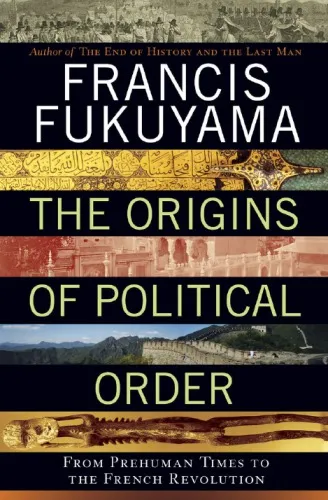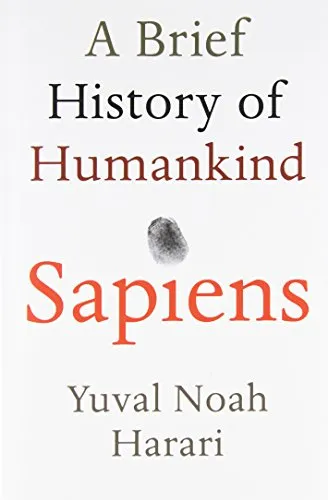The Origins of Political Order: From Prehuman Times to the French Revolution
4.3
Reviews from our users

You Can Ask your questions from this book's AI after Login
Each download or ask from book AI costs 2 points. To earn more free points, please visit the Points Guide Page and complete some valuable actions.Related Refrences:
Introduction to "The Origins of Political Order: From Prehuman Times to the French Revolution"
Francis Fukuyama's "The Origins of Political Order: From Prehuman Times to the French Revolution" is a seminal work that delves into the historical development of political systems, examining the factors that have shaped governance structures from the distant past to the threshold of the modern age.
Detailed Summary of the Book
The book is a comprehensive exploration of political evolution, beginning with human prehistory and culminating in the French Revolution. Fukuyama seeks to understand how societies develop governance structures, why some states succeed while others fail, and how the rule of law, political accountability, and the state have evolved over time. The narrative is divided into several parts, each addressing key stages in political development.
In the opening sections, Fukuyama examines the biological and social instincts that underscore human political organization. He traces the formation of early tribal societies and the subsequent evolution of more complex political entities like chiefdoms and early states. Fukuyama then investigates the role of religion, warfare, and technology in state formation.
Moving through history, he explores the development of bureaucratic states in China, the rule of law in India, and the interplay between religion and politics in the Muslim world. One of the critical contributions of this book is its cross-cultural analysis, highlighting how different societies addressed similar political challenges in unique ways.
Fukuyama concludes by assessing the strengths and weaknesses of various political systems and the universal principles that have emerged over millennia. His analysis isn't simply historical; it's deeply intertwined with contemporary concerns about governance and political stability.
Key Takeaways
- The development of political institutions is complex and multifaceted, influenced by a myriad of factors including geography, warfare, religion, and culture.
- Successful political orders balance three essential components: a strong state, the rule of law, and accountable government.
- Political decay occurs when institutions fail to adapt to changing circumstances.
- Cross-cultural analysis reveals that different societies can achieve similar outcomes through distinct pathways.
Famous Quotes from the Book
"In understanding institutions, we need to recognize that history is not a linear story of progress."
"Developing countries often suffer from weak states, which is a root cause of many of their political problems."
"The rule of law entailed that the law, rather than individuals, governed how things should be done."
Why This Book Matters
"The Origins of Political Order" stands out as an essential read for anyone interested in political science, history, or international relations. Its significance lies in its ambitious attempt to answer why political systems around the world have developed the way they have. Fukuyama provides a blueprint for understanding the dynamics that lead to stable governance and the avoidance of political decay.
The book’s cross-cultural analysis and historical depth provide readers with a comprehensive framework for assessing current global political challenges, making it an invaluable resource for scholars, policymakers, and anyone interested in the future of political order.
Free Direct Download
Get Free Access to Download this and other Thousands of Books (Join Now)
For read this book you need PDF Reader Software like Foxit Reader




